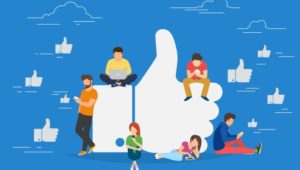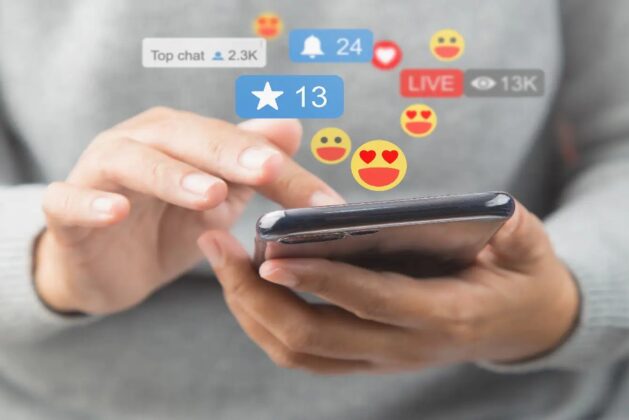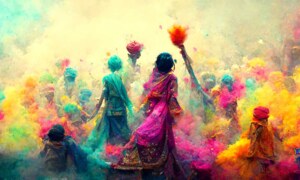[ad_1]
Your day will be successful, you will complete your work according to your schedule. Until you pick up your smartphone and scroll through a feed full of photos of your friends’ parties and celebrations. When you see others happier, your peace of mind is lost and it leaves you in a state of wonder and confusion! Social comparison is inevitable, especially in today’s digital world, but we need to draw the line before it affects our mental health.
There are so many women with perfect figure, beautiful clothes and jewelry, exotic holidays, birthday parties, baby showers, pregnancy shoots, food stories, romantic proposals, on social media that it makes people to indulge in a dreamy lifestyle. This can make people think about their haves and have-nots, which can lead to negative social comparison effects.

social comparison and mental health
The world of social media is only growing with increasing coverage of all age groups and people, you don’t have to let your mind get bogged down by social comparisons.
Life coach Sheetal Shaparia told Health Shots, “With the popularity of many social media sites like Facebook, Instagram, Twitter, Snapchat, more research is needed on its uses and negative effects.”
The younger generation uses more social media platforms than the older generation. It provides many opportunities to learn, connect, share and interact with others. However, it can decrease very quickly.
According to a 2021 study by a professor at the University of Florida and published in the Journal of Communication Technology, frequent upward comparisons reduce positive emotions and make social media users feel bad about themselves.
“It’s a basic human instinct to compare ourselves to others and find a sense of self-worth that we hear, however wrong it may be,” Shaparia says. Interactive platforms like Facebook or Snapchat are probably more negative in their image than follower type platforms (Twitter and Instagram). This is because the people you follow and interact with are mostly people you probably know. This makes comparing yourself to people more personal. ”

After all, other people look better, have better time, have a better quality of life, or travel more.
This can have devastating effects on a person’s mental health. Most importantly, self-image, body image and depression can also occur,” says the expert.
How can social comparison affect mental health?
The fear of missing out is as real on social media as it is in real life. And the fear that others are having a better time or being more successful or happier than you is affecting your mental health.
According to Sheetal Shaparia, here are some of the ways social comparisons affect mental health:
1. Depression:
Seeing posts and feeling jealous or comparing yourself to others can make depression worse.
2. Low self-esteem:
Active users of social media platforms are known to exhibit inferiority complex and low self-esteem and are more likely to suffer from depression.
3. Body image:
Let’s face it, someone will always look better, have a better and healthier body. We judge others according to our own perception of beauty. Negative self-comparison with others is on the rise, especially among young people. It is very common among social media users of all genders and is directly related to low self-esteem.

4. Cyberbullying:
This can happen for any number of reasons; Body image, appearance, accent, skin color, use of certain words, geographic location, etc. These are sensitive times and people get upset about everything. Unfortunately, with the increase in users, more and more people are forced to become victims of extreme cyber attacks. Many people hide behind their keyboards to comment whatever they want, but such comments can have disastrous consequences.
5. Eating disorders:
The more time you spend on social media, the more content you will see from users or influencers with ideal body types.
This has led to an increase in eating disorders among young users. They try to get the body they want through dieting, as adopted by social media influencers.
Tips to avoid letting social media content influence you
It is impossible to expect people not to use social media or to limit their exposure. However, its effects can be controlled by keeping certain things in mind.
Be aware that posts on social media are not a true indicator of real life.
You need to be aware of those messages and people who harm your peace of mind. If you’ve identified these triggers, you may want to consider unfriending or unfriending these accounts.
Stay positive and focus on the accounts and people who inspire you and be grateful for it.
You can try to limit your time on social media and focus your energy on learning a new skill, making friends in real life, etc.
[ad_2]



Leave a comment